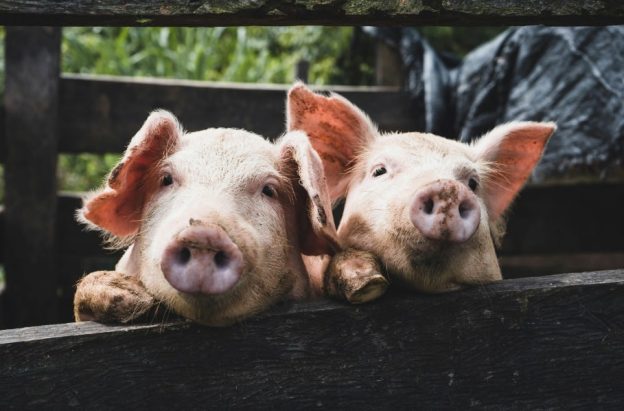Many procedures used in intensive farming raise issues over animal welfare. These include ones like overcrowding and early maternal separation. Efforts to enhance animal health and wellbeing consist of altering the farm environment so it will better match animal’s needs. This is by improving housing conditions and key practices.
Mental health of animals
Saying this, animal welfare goes beyond suitable physical health. Mental health is equally as important. Assessing the well-being of farmed animals needs to concentrate on whether they have the capacity and freedom to adapt to environmental obstacles. Consider how each animal is coping with the conditions it lives in. They will be in a decent state of welfare if they’re comfortable, well-nourished, safe, and healthy. They also need to have mental stimulation and the chance to express their instinctive behaviours.
In the intensive farming system, there are significant housing challenges. There are also potentially harmful management practices and procedures too. These influence the mental and physical wellbeing of animals. Examples include feed and water restriction, lighting regimens, and individual housing of animals and confinement.
Many practices used in intensive farming are employed to counter the issues that appear. Said issues are a result of the farm conditions themselves. Other processes improve the handling of animals. Thus, animals in intensive farming set ups are forcibly adapted to meet the limits caused by housing conditions. This is massively different to the more natural act of the environment adapting to the animal.
Natural behaviours
Farm animals possess specific natural behaviours too. However, in cramped cages or pens, they can’t carry out their instinctive behaviour. So, to adapt to their environment, they may begin biting pen mates, chewing on bars, and other things. It can have a huge impact on animal health. The farm animal makes use of whatever it is able to find to imitate the things they would be doing in a more natural setting.
To enrich animal wellbeing, those in charge of intensive farming operations must examine the animal’s natural behaviours. From there, they can then create a setting that permits them.
Individual housing
Let’s look deeper into the issues that intensive farming causes. With the individual housing and confinement of social animals, it can impact their health. Sadly, housing on farms focuses on improving productivity and minimising production costs. So, intensive farming is able to adversely affect wellbeing by not offering farm animals their essential needs.
Often animals remain in confined areas. What this does is cause aggression, lameness, and discomfort. Since there is so little space, they often can’t lie down or turn around. Additionally, they lack the freedom to express their natural behaviours. These would be forming social groups, dust bathing in hens, and using their maternal instincts.
Farm animals divided into individual stalls don’t have the chance to interact with their own species. Due to this, they display high degrees of stereotypical behaviour. Examples are pacing and unresolved aggression. Improving housing conditions could offer a more appropriate balance between farm animals’ needs, environmental constraints, and their capacity to interact with the environment.
Inconsistent lighting
Did you know that light is able to impair the welfare of chickens and pigs? Pigs get kept under a large number of light-dark phases and light intensities. They also remain in semidarkness at times to stop aggressive behaviour. Yet, these lighting inconsistencies undermine explorative behaviour. It can impact animal health.
For chickens, a myriad of lighting systems are utilised. They include continuous light and intermittent schedules with some successive lights on/lights off periods. The lighting inconsistencies are based on the assumption long light exposure will result in maximal growth. It can have a negative impact on wellbeing though.
Food and water availability
Lastly, the welfare of farm animals suffers when their food and water is limited. Food restriction is routine with broiler breeders. This is done to control body mass and growth. Although, such a restriction results in aggressive behaviours. Chickens might undergo water restriction because of adverse social interactions. Or, perhaps an injury could prevent them from getting to water.
Farm animals need ready access to fresh water. They also need a fresh diet to maintain full vigour and health. Feeding instruments should be at a suitable height and in accessible locations for farm animals. Moreover, you must check daily for blockages.
Buy quality animal health products
At JS Hubbuck Ltd, we have a great selection of products available to buy. This includes several that will help you keep your farm animals in good condition. We’ve already helped many clients over the years; our team can also do the same for you.
So, get in touch today if you’re interested in working with us. We can help you to improve animal health and wellbeing. Crucially, we are friendly and have plenty of advice to share.

